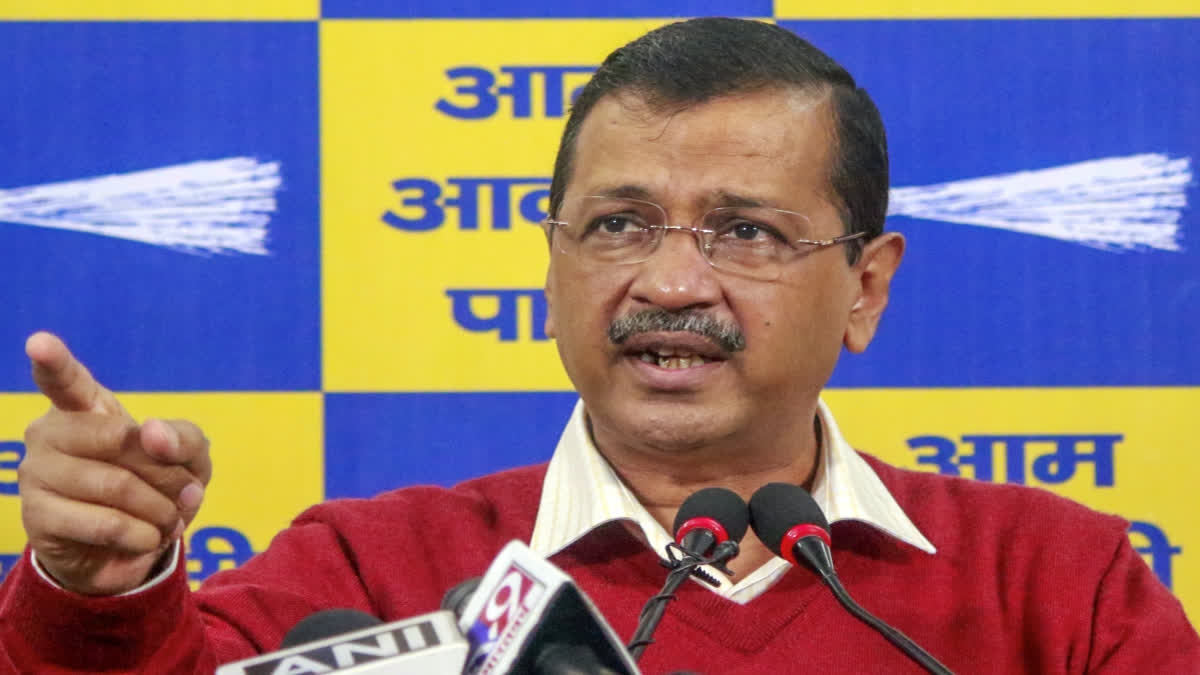The Aam Aadmi Party (AAP) has officially ruled out an alliance with the Congress for the 2025 Delhi assembly elections. While murmurs of backchannel negotiations persist, the current political landscape and stakes for AAP chief Arvind Kejriwal make such a partnership highly unlikely. For Kejriwal, this election represents nothing short of an “agnipariksha,” a crucial test of his leadership and political relevance.
After his recent arrest and subsequent bail granted by the Supreme Court, Kejriwal resigned from the Chief Minister's post, appointing Atishi as his successor. This move makes the upcoming election a litmus test not only for AAP’s governance model but also for Kejriwal’s hold over Delhi’s voters.
The Congress, on the other hand, holds little sway in Delhi’s assembly elections, with its vote share plummeting to below 10% in recent years. Even when AAP and Congress joined forces during the Lok Sabha elections, they failed to secure any of Delhi’s seven parliamentary seats. Despite this, a three-way contest could significantly alter the electoral dynamics.
The potential for a split in votes, particularly among Muslim and Dalit communities dissatisfied with Kejriwal’s leadership, poses a challenge for AAP. This discontent may not translate into Congress victories but could weaken AAP enough to give the Bharatiya Janata Party (BJP) an advantage.
Ultimately, the absence of an alliance increases the likelihood of a triangular contest, which may harm AAP more than it helps Congress. For Kejriwal, the stakes couldn’t be higher. His ability to retain Delhi as AAP’s stronghold will determine whether his political brand emerges unscathed—or diminished—in this high-stakes battle.
Decoding Delhi’s Electoral Shifts: Assembly vs. Lok Sabha Dynamics
Delhi’s electoral trends reveal a fascinating duality in voter behaviour, with stark contrasts between assembly and Lok Sabha elections. In the 2020 Delhi assembly elections, the Aam Aadmi Party (AAP) secured a commanding 53% vote share, while the Bharatiya Janata Party (BJP) garnered 38%, and the Congress faded into near obscurity with just 4%.
This pattern mirrored the 2015 assembly elections, where AAP achieved 54%, BJP 32%, and Congress 9%. Notably, 2013 was the last time Congress performed decently in state elections, capturing 24% of the vote against BJP’s 33% and AAP’s debut at 29%. Shifting focus to Lok Sabha elections, the BJP consistently dominates Delhi.
In 2024, the party captured 54% of the vote, with AAP trailing at 24% and Congress at 18%. Similar patterns emerged in 2019 (BJP 56%, AAP 22%, Congress 18%) and 2014 (BJP 46%, AAP 32%, Congress 15%). What makes Delhi’s voting behavior unique is the distinct core support bases. The BJP commands a steady 32% of voters, representing its ideological stronghold. AAP’s core constituency is around 18%, significantly boosted during assembly elections by voters who typically support Congress in national polls. Congress consistently secures 18% in Lok Sabha elections, but this support largely shifts to AAP in state elections.
Adding to this dynamic are 10–15% floating voters who oscillate between AAP in assembly elections and BJP in Lok Sabha contests. This swing plays a decisive role in AAP’s dominance at the state level and BJP’s unshakable lead in parliamentary polls. Delhi’s unique voter behavior underscores the complexity of its political landscape—where local governance and national narratives push voters in divergent directions.
Muslim Vote Worry
The Aam Aadmi Party’s (AAP) decision to contest the 2025 Delhi Assembly elections without partnering with the Congress could backfire, especially among Muslim voters. Historically, the Muslim community has been a decisive force in Delhi’s electoral landscape, often determining outcomes in key constituencies.
In 2015, according to a CSDS-Lokniti study, AAP enjoyed overwhelming support from Muslims, securing 77% of their votes and winning nine out of ten Muslim-majority seats. However, this relationship began to falter by 2020, with AAP’s vote share among Muslims dropping to 69%.
This decline was exacerbated in the 2022 Municipal Corporation of Delhi (MCD) elections, where Congress made gains in Muslim-dominated areas like Mustafabad and Shaheen Bagh, capitalizing on AAP’s perceived inaction during the 2020 riots and its ambiguous stance on the Citizenship Amendment Act (CAA).
Without an alliance, Muslim votes may fragment between AAP and Congress, undermining their collective strength. This division could enable the Bharatiya Janata Party (BJP) to consolidate its position, exploiting the fractured secular vote.
AAP faces a dual challenge: restoring trust among Muslim voters disillusioned by its evolving political identity and addressing the broader risk of Opposition disunity. Failure to do so may not only weaken its grip on Delhi but also bolster BJP’s dominance in the capital.
Retaining Dalit Support
Historically, Dalits were a core voter base for the Congress, but over time, many shifted their allegiance to AAP, attracted by its promises of social justice and inclusive governance. However, recent events have strained this relationship. One of the most notable incidents was the resignation of Rajendra Pal Gautam, a prominent Dalit leader and former Delhi Social Welfare Minister.
Gautam was forced to resign from his cabinet post in October 2022 after leading a traditional conversion ceremony where Dalits converted from Hinduism to Buddhism. This event sparked controversy and highlighted the delicate balance AAP must maintain in addressing the aspirations and sensitivities of its Dalit supporters.
Following Gautam's resignation, Rajkumar Anand, another prominent Dalit leader, took over as the Social Welfare Minister. However, Anand also resigned from AAP in April 2024, citing dissatisfaction with the party's policies and accusing it of being anti-Dalit. Anand's departure further underscored the growing discontent among Dalit leaders within AAP.
This sentiment is particularly potent given the recent defections of key Dalit leaders from AAP to Congress, such as Rajendra Pal Gautam. Recently, Congress leader Sandeep Dikshit recently criticized AAP's governance and emphasized Congress's commitment to social justice and equality. This narrative could resonate with Dalit voters who feel disillusioned with AAP's handling of their concerns. This way the lack of alliance between AAP and Congress could affect the AAP in terms of retaining its Dalit support.



